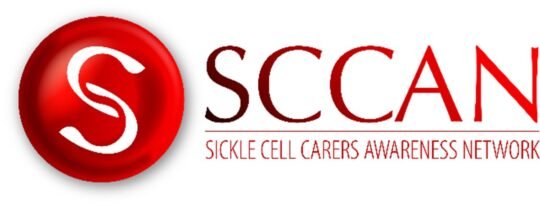Sickle cell anaemia in Sierra Leone – A mother’s story
Image: Tom Bradley Photography for Medical Assistance Sierra Leone
Sickle cell anaemia is thought to affect around 2% of Sierra Leoneans. Those suffering from sickle cell anaemia in Sierra Leone have little or no access to support or medication. The basic facilities needed to manage patients are absent and screening is only available in the capital, Freetown.
Misdiagnosis of sickle cell anaemia is common, with many health workers interpreting the symptoms as malaria. The diagnosis is usually made when a patient presents with a severe complication or ‘crises’. It is estimated that 80% of children with sickle cell anaemia do not reach their 5th birthday.
Medical Assistance Sierra Leone has been working with the Sickle Cell Carer’s Awareness Network (SCCAN) to support those affected by sickle cell anaemia in Kono District. Some support for screening is now periodically available from US partner Dr. Cheedy Jaja and his team. SCCAN run follow-up clinics 3 days a week at a local Mission hospital.
Testimonies are an important part of the narratives of disability that must be taken into consideration by advocates and policy makers as they work to effect positive change.
The personal story of SCCAN Coordinator Sia Nyandemo was part of the submission of evidence to lobby for a UN Special Resolution recognising human rights abuses linked to certain beliefs in witchcraft as harmful practices, which is due to be tabled at the UN Human Rights Council this year.
Sickle Cell Disease and Witchcraft Accusations
Sia Evelyn Nyandemo
I am a mother with a first-hand experience of facing the sudden death of a daughter and ignorantly ascribing the tragedy to witchcraft.
When our five-year-old daughter died of a mysterious cause (later to be unveiled as Sickle Cell Anaemia), I was devastated.
I flatly accused my aunty from my mother’s side as the person responsible for the death of our little daughter.
This verdict was the foregone conclusion from the vast majority of people in our small town. We actually knew no better than to believe that the death of a small child has to be the dark handiwork of a close family member. Sadly, my poor Aunty was the candidate for shaming, on this occasion. So the verdict of condemnation was unanimous and unforgiving!
However, the tables turned on me after our second daughter also died suddenly at the same age as her older sister – age 5 – also from Sickle Cell Anaemia.
In the Kono tradition in Sierra Leone, from which I hail, when a woman’s first child dies, she is not to cry, mourn or go to the graveside. So, when our first daughter died, I was not allowed to go to the graveyard.
When 2 years later my second daughter died, my grandmother’s sister immediately accused me of being the one responsible for the death of not just this child but of both my daughters simply because it was a very rare thing for a mother to lose two children, both dying at the same age.
When we were half way to the graveside, I felt kind of guilty that when the first child died, I was not permitted to see her off and had never visited the graveside because according to our tradition, it is a taboo to do so. So, I decided to stop halfway and say my goodbye. It was at that point that my grandmother’s sister, in a very angry tone and in as loud a voice as she could muster, attracted the mourners and sympathisers, directly accusing me in our native dialect, “you sure have hands in the deaths of these children. No woman buries her children all at the same age, you will have to confess what you know about their deaths”.
I was totally dumbfounded and my whole self sank in shame as everyone was now looking at me. At that point, I was convinced that the old lady must be right about me because no woman that I or anyone in my surrounding knows of had ever experienced such a tragic coincidence before.
The collective pronouncement of guilt hovered over my head like a ten-ton sword.
I lived with that guilt for a very long time until I came to the UK where I first read about sickle cell disease and developed a detailed understanding of the condition. I realised that what happened to my aunty and myself was all a myth and that it had nothing to do with witchcraft, but it was all due to lack of ignorance and lack of awareness about this condition.
This is what prompted my husband and I to go back to Sierra Leone to correct our mistakes and change the concept of sickle cell disease being attached to witchcraft, through our small organisation the Sickle Cell Carers Awareness Network (SCCAN).
The lack of proper knowledge and the fear of the unknown have succeeded in creating a layer of mysticism around illnesses such as sickle cell anaemia resulting in negative suspicions, witchcraft accusations, deep mistrust, and convenient interpretations that cause isolation, fractious divorces and needless deaths.
SCCAN is a humanitarian non-governmental organisation set up to help tackle some of the many problems associated with the sickle cell situation in Kono district in particular and Sierra Leone in general.
SCCAN seeks to address this problem through the spread of awareness via door to door engagements, community awareness meetings, nationwide advocacy, and direct long-term practical interventions.
Through SCCAN we are now taking the battle to Sickle Cell, challenging witchcraft accusations, saving marriages, saving lives through access to medical facilities, mending societies and spreading hope.
To find out more about the work of Medical Assistance Sierra Leone and the Sickle Cell Carer’s Awareness Network, please visit: http://www.masierraleone.org.uk/

